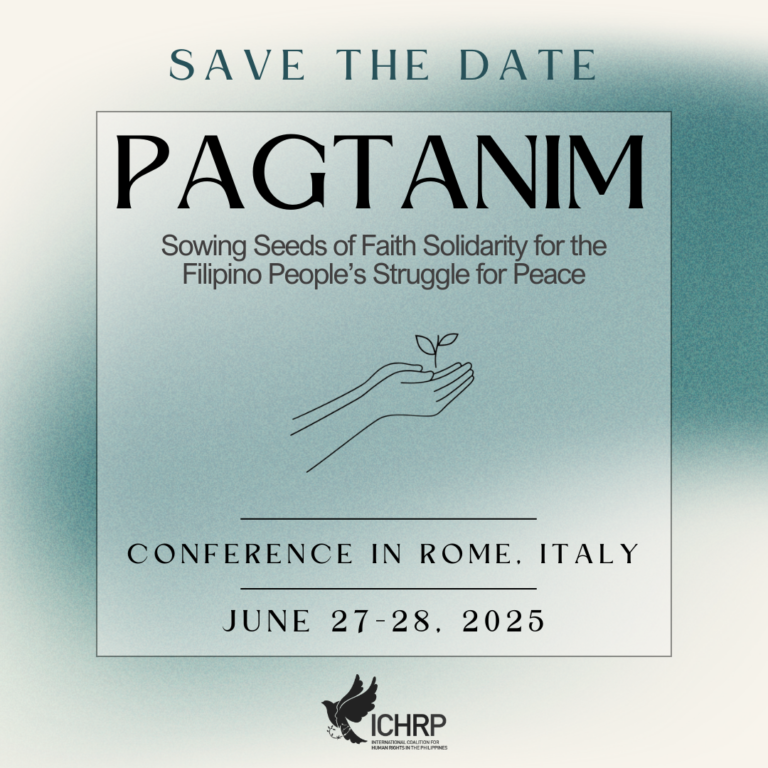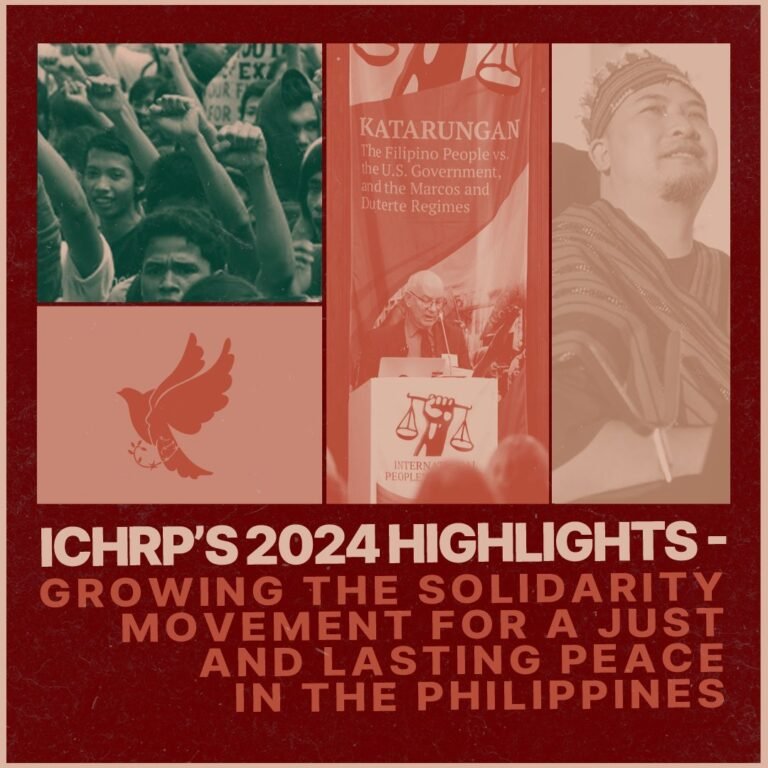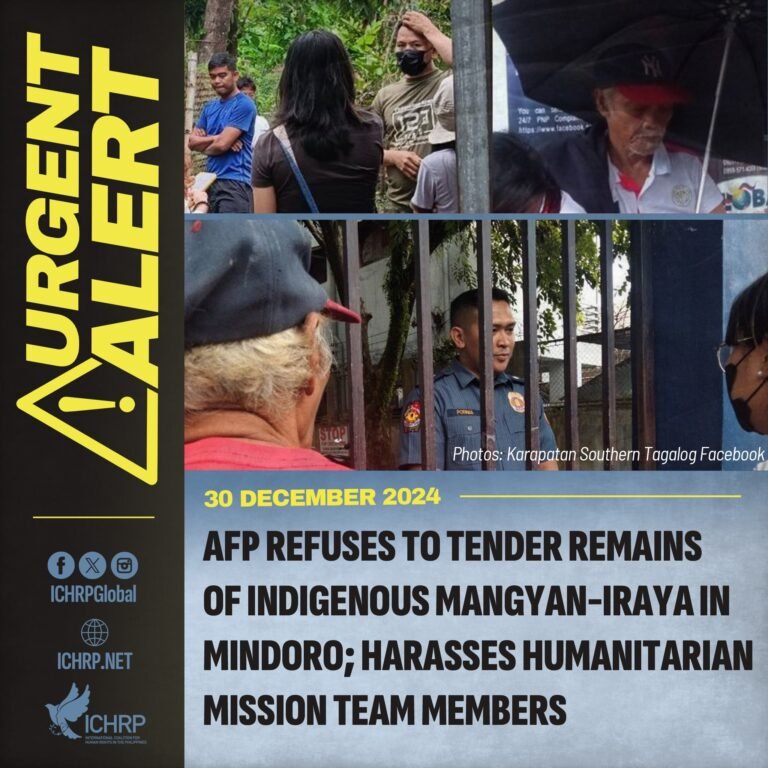Press Statement
January 14, 2025
The International Coalition for Human Rights in the Philippines (ICHRP) condemns the arrests of three development workers in Negros, on trumped-up charges of financing terrorism and terror law charges. “This is blatant repression of a pro-peasant non-government organization by a landlord government, and this has become the continuing policy of the Marcos Jr. government,” said ICHRP Chairperson Peter Murphy. “These trumped-up charges must be withdrawn now.”
Federico Salvilla, Perla Jaleco and Dharyll Albañez, former and current staff workers of Paghidaet sa Kauswagan Development Group Inc. (PDG), were arrested on January 2, 2025. Salvilla and Jaleco were arrested separately, while Albañez, upon learning of the other arrests, voluntarily presented himself to authorities and posted bail.
Albañez and Salvilla are facing two counts of alleged violation of Section 8 of Republic Act No. 10168, or the Terrorism Financing Prevention and Suppression Act of 2012. Pavillar, meanwhile, is facing three counts of the same charge. These were filed at the Regional Trial Court Iloilo Branch 31 in December 2024, the court designated to hear terrorism-related cases in Western Visayas.
There is now a pattern of the government disrupting long-established and well-regarded community organisations with the financing of terrorism charges.
On May 10, 2024, 27 current and former members (including 3 deceased!) of the Cebu-based NGO Community Empowerment Resource Network (CERNET) were accused by the Department of Justice of violating Section 8 (ii) in relation to Section 9 of the Terrorism Financing Prevention and Suppression Act of 2012. The DOJ was responding to a press release from the 302nd Infantry Brigade, 3rd Infantry Division of the Philippine Army. The 24 posted bail of P200,000 (US$3,420) each.
In October 2024, Petronila Guzman and Lenville Salvador, board members of KADUAMI (Katinnulong Daguiti Umili ti Amianan), and Myrna Zapanta, a lay worker and member of the secretariat of the Ilocos Regional Ecumenical Council (IREC), received subpoenas from the Department of Justice (DOJ) directing them to answer trumped-up charges of allegedly violating the terrorist financing law.
PDG is a well-known development NGO based in Kabankalan, Negros Occidental, focusing on promoting sustainable agricultural programs and disaster relief. It advocates for agrarian reform, sustainable agriculture and the rights of small farmers and fisherfolk.
In recent years, PDG officers and members have faced threats, harassment, surveillance, trumped-up charges and worse, killings. Its executive director, Atty. Benjamin Ramos Jr., was killed in 2018. In April 2024, his widow, Clarissa Ramos, who also served as executive director of PDG, and Felipe Gelle Jr., a PDG staff as well as head of the Human Rights Alliance of Negros, were also hit with terrorist financing charges.
“ICHRP warmly commends PDG on their consistent, sustained relief, education and development work in the communities,” said Murphy. “The blatantly phoney accusations of terrorist financing against PDG and its members are also an attack on the long-suffering peasant communities of Negros, now battered by typhoons and the Mt. Kanlaon eruption,” said Murphy.
“This use of anti-terrorism financing laws against grassroots community initiatives is driven by the National Task Force to End Local Communist Armed Conflict (NTF-ELCAC) as part of the national counter-insurgency program,” said Murphy. “It is a blatant violation of International Humanitarian Law to fail to distinguish between civilians and armed combatants. It is long overdue for the NTF-ELCAC to be abolished.”
Add your name to this sign-on statement to call for the immediate release and dropping of charges against PDG workers:
Further comment: Peter Murphy +61 418 312 301; media@ichrp.net

















